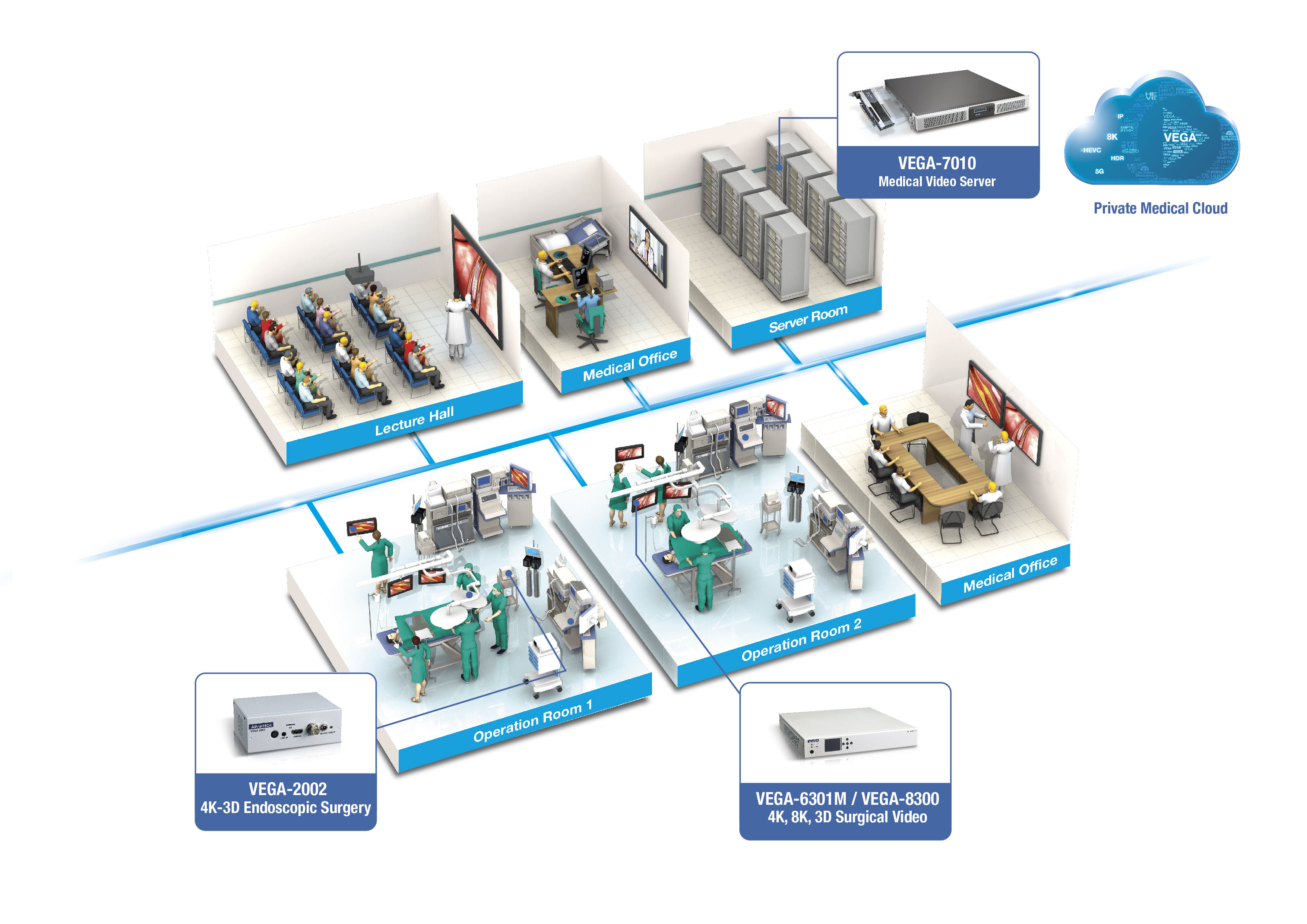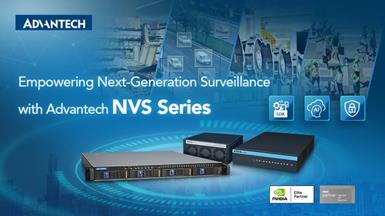Accelerated 4K Recording and Streaming Solutions for Medical Applications
7/17/2020

Introduction
Medical services and Operating Rooms (OR) are being transformed by video. Taking a lead from the rest of the video industry, high resolution 4K/UHD cameras, instruments, displays, and visualizations are proliferating throughout, giving options for detailed sharing for telemedicine assistance, detailed presentations for training and education, and detailed recordings for patient records as well as oversight and defense. This resolution revolution enables more to be seen through endoscopes, and more to be viewed from head cameras or room monitors.
At
the heart of 4K/UHD video sharing, remote streaming and content recording is
the latest compression technology. New internationally agreed standards for
video compression are introduced roughly every 10 years with each generation
offering roughly a 50% reduction in streaming bitrate or storage requirement
for similar video quality each time. The most widely used and well established
codec is H.264/AVC, first introduced in 2003. The High Efficiency Video Coding
(HEVC) codec was introduced in 2013, and trades off 50% better compression
ratios with up to a tenfold increase in processing power required. Coupled with
a four times increase in resolution, this realistically means hardware
acceleration of the video compression is critical to maintaining the low power
consumptions expected in medical environments where a single 6W device can
replace the 600W computer required for an equivalent software encoder.
- Live Video Inputs: allow video capture from a variety of sources, including 4K/UHD
- Live performance: reliably encode and/or stream 4K at a solid 60fps
- Good Compression: maximize quality for the limited available uplink bitrate using HEVC
- Quality and accuracy: support high bitrates where detail needs to be preserved and also 4:2:2 chroma subsampling to maintain best color accuracy
- Minimize Power: always limited in operating rooms to avoid fan noise
- Low Latency Streaming: as low as possible within other constraints to enable telemedicine consultations
Single channel 4K/UHD or 4 x 1080p 60fps 10bit 4:2:2 capable HEVC/AVC encoder accelerator plug in board with a variety of direct video capture options including 4 x 3G SDI, 1 x 12G SDI or dual 10G Ethernet supporting SMPTE ST2110 ingress. As a PCIE plug-in card, VEGA-3311 can be used to add very high quality HEVC or AVC encoding to existing equipment, or can be used along with Advantech’s flexible VEGA-7010 server to create multi-channel encoders for remote production applications. The VEGA-3311 offers a high degree of programmability via either a dedicated SDK or a simple-to-integrate FFMPEG plug-in, and even can act as an accelerator for the Wowza streaming engine.
For size-limited operations, and when 4:2:2 support is not required, Advantech can offer a very compact encoder that offers 4K/UHD 60fps 10bit live HEVC or AVC encoding and LAN/WAN streaming in a 12W package. With an easy to use, extensible web configuration interface and support for HDMI inputs as well as SDI, VEGA-2002 is a portable and flexible option for many different medical applications. It can be supplied as bare module for OEMs or integrators to fit into existing medical grade enclosures.
Ultra-compact all-in-one encoder application platform built on the same 4K/UHD 60fps 10bit 4:2:2 HEVC capture and encoding functionality as VEGA-3311 with additionally an x86 processing subsystem for management interface, streaming protocol generation, local data formatting and recording, and system control. With a sub-100W power consumption and compact dimensions, the VEGA-6301M offers a compelling performance density with easy integration into equipment stacks.
Medically certified PC system supporting multiple PCI Express cards. The certification means AVAS-402 can act as the main host of an in-room recording and processing appliance, especially when equipped with VEGA-3311/12 cards for local capture and encoding.
Highly flexible video server and video appliance platform offering unparalleled flexibility in a 1U short depth profile with 4 full height PCI Express slots and a server class Xeon E3 CPU supporting Intel Quick Sync Video functionality for additional video processing. The VEGA-7010 is ideal to be fitted in hospital equipment rooms to support transcoding to create adaptive bit rate streaming ladders for transmission to remote viewers.
MediaFlow is an additional software package that system integrators can use to deploy standalone video encoding or transcoding applications using VEGA-33xx series accelerators. It runs on the VEGA-7010 host under Linux, and allows quick deployment of the accelerated encoding functions together with appropriate encapsulation and streaming outputs.
Where 4K isn’t quite enough, VEGA-8300E and 8300D are new all-in-one platforms supporting live UHD2/8K 60fps 10bit 4:2:2 HEVC contribution encoding and decoding. VEGA-8300 series are ready to use by system integrators as a result of collaboration between Advantech and software partner Spin Digital who provide optimized media playout software for the decoder, and web-based system management software for the encoder. The VEGA-8300 family could be used, for instance, to set up an 8K point to point training link across a suitable LAN/WAN connection (around 100Mbit/s).

Hotline Europe: 00-800-248-080 | Hotline USA: 1-800-866-6008
Email:video.solutions@advantech.com
Regional phone numbers can be found on our website at



-25/VEGA-8301D_FL20201014173755.jpg)
-25/NVS-501_Right_B_2520201229154428.jpg)
-25/未命名設計20231101152525.png)
-25/VEGA-1200_Right-1_S_2720230322112319.jpg)
-25/VEGA-1000_02--20220629162429.jpg)
